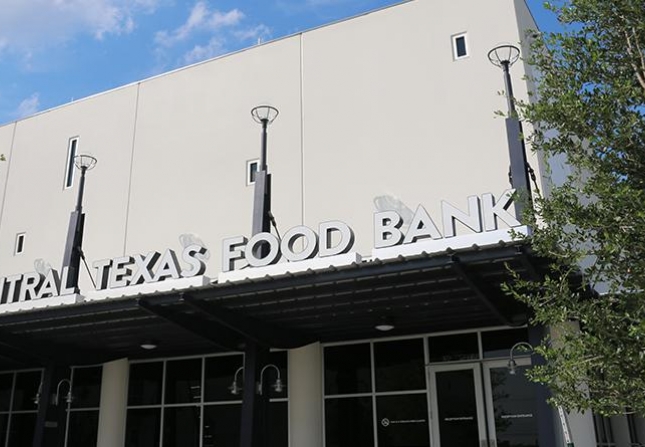Jan22

When you’re living with diabetes, you’re challenged to keep your blood sugar in a very narrow window. It is all about balance and the right mix of medication, exercise and proper nutrition. Adding poverty to the equation can throw off that balance and land you in the hospital. These are the findings from a recently published health policy journal study that links low-income budgets with greater risk for hospital admissions for hypoglycemia. Hypoglycemia, also known as “low blood sugar,” can cause symptoms as mild as headaches and lightheadedness or as severe as seizures and unconsciousness. This study supported what those of us in the food justice community have known for a while: hunger is a public health issue.
We know that, by keeping things in balance, people with diabetes can live a full and productive life and manage both the long range and short term health problems associated with the disease. However, health care professionals don’t always talk to patients about whether they can afford the nutritious foods they need to maintain that balance, nor do they know how to link patients to nutrition safety net programs such as food stamps and food pantries if they can’t.
It should be intuitive that poor nutrition has significant public health risks. But policy makers don’t always associate our low-income population’s higher rates of chronic disease with food access.
[[{"type":"media","view_mode":"media_large","fid":"735","attributes":{"class":"media-image wp-image-10771","typeof":"foaf:Image","style":"","width":"231","height":"201","alt":"Source: 2013 Diabetes Burden Report"}}]] Source: 2013 Diabetes Burden Report
Here are the inconvenient truths about the surge of diabetes in Texas now affecting 1.8 million adults and responsible for approximately 1 in 10 health care dollars spent:
The less poor you are, the less likely you are to have diabetes, by a whole lot.
Three out of 10 Texans living with diabetes have incomes of less than $25,000 per year.
Doctors say the dumbest way to cut federal health care costs is to cut food stamps.
Managing diabetes on a bare-bones budget is simply too heavy a burden to bear alone. According to the 2013 Diabetes Burden Report, people with diagnosed diabetes spend, on average, 2.3 times more on health care than they would if they didn’t have diabetes.
[[{"type":"media","view_mode":"media_large","fid":"736","attributes":{"class":"media-image size-medium wp-image-10772","typeof":"foaf:Image","style":"","width":"245","height":"300","alt":"Source: 2013 Diabetes Burden Report"}}]] Source: 2013 Diabetes Burden Report
More and more Texans are having trouble making ends meet because their incomes are falling behind the cost of living. These economic hardships range from falling behind on paying rent, utilities, credit card payments, child care and health care bills. As a result they are compromising in any way they can, including at the grocery store or pharmacy. It is difficult to get ahead of this cycle of compromise when all you’re doing is triage.
If we are to treat hunger as the chronic health issue it is, we must treat the causes and not just the symptoms. We must address the economics and do it in a preventive way. Many initiatives can do this: providing a livable wage and opportunities for future job mobility, supporting asset building and savings, improving financial literacy, increasing job training and child care supports.
In addition to treating the causes of hunger, we can “level” the playing field nutritionally. Make healthy food more affordable and accessible. Ensure that nutritious food is a given, rather than a luxury. This is where our federal nutrition programs come in. SNAP, school meal programs, WIC and The Emergency Food Assistance Program (TEFAP) all provide preventive supports to low income households.
Congress is currently considering public policy decisions on the budget and the Farm Bill. Many of these decisions can mitigate hunger’s effect on the health of a household and are less costly than treating the outcome. Ask our policy makers to invest in an ounce of prevention.
The opportunity to live a full and healthy life should not be determined by the size of your wallet. It should be in everyone’s reach. There’s more that we can do, and much of it is within our control as active, engaged citizens. We can pay a little to prevent it, or we can pay a lot to treat it. With good jobs, a working safety net and investments in education, we can end hunger once and for all.
Category







